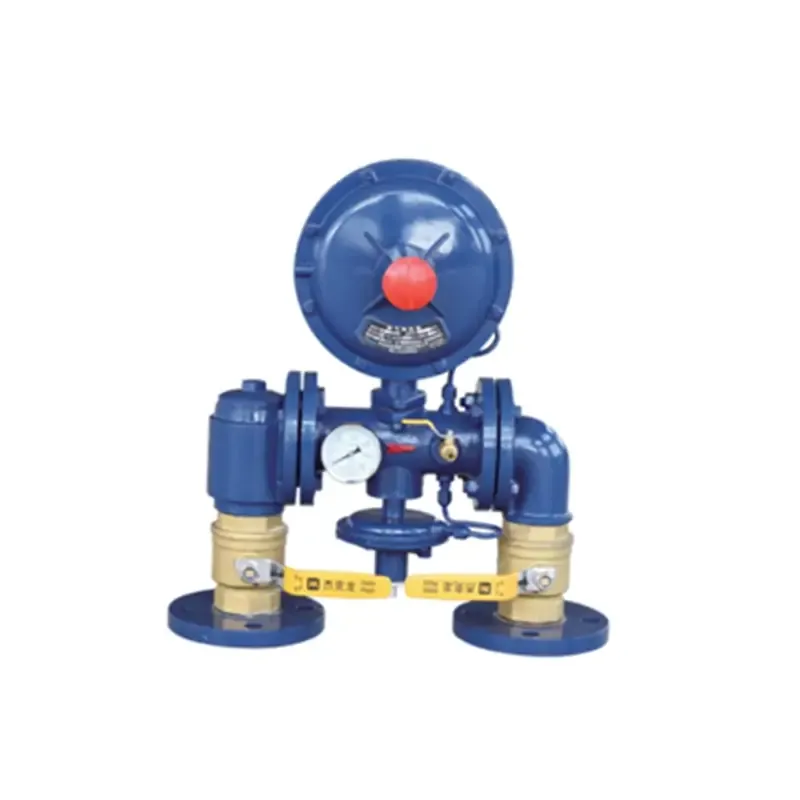
Dec . 04, 2024 09:22
Back to list
Gas Pressure Reduction Station Functionality and Importance in Energy Systems
The Role of Gas Pressure Reducing Stations in Modern Energy Distribution
Gas pressure reducing stations (GPRs) play a crucial role in the distribution of natural gas, ensuring that the fuel reaches consumers safely and efficiently. As the demand for natural gas continues to grow, particularly in residential heating and industrial applications, understanding the operation and importance of GPRs becomes essential.
Understanding Gas Pressure Reducing Stations
Gas pressure reducing stations are facilities designed to decrease the high-pressure gas coming from pipelines to a level suitable for use in homes and businesses. Natural gas is transported through extensive networks of pipelines under high pressure, often exceeding 1000 psi. This pressure is necessary to move the gas over long distances, but it is too high for direct consumption. GPRs help modulate this pressure to safer, usable levels, typically around 7 psi or lower for residential use.
The process involves several components, including pressure regulators, safety devices, and metering equipment. Pressure regulators are the heart of the GPR; they adjust the flow and reduce the pressure of the gas. Safety devices, such as pressure relief valves, are crucial for preventing overpressure situations that could lead to dangerous situations, including explosions. Metering equipment ensures that the gas flow is accurately measured, allowing for billing and monitoring of usage.
Importance of GPRs in Energy Distribution
.
2. Efficiency in Distribution GPRs contribute to the efficient delivery of natural gas from the transmission pipelines to end-users. By reducing the pressure to appropriate levels, they facilitate smoother operations within the distribution network. This efficiency is crucial for maintaining reliable gas supplies, especially during peak demand periods, such as winter months when heating needs surge.
محطة تخفيض ضغط الغاز

3. Environmental Impact Natural gas is often regarded as a cleaner alternative to other fossil fuels. By ensuring that gas is delivered safely and efficiently, GPRs play a role in promoting the use of natural gas over more polluting energy sources. Moreover, reducing gas leaks through effective pressure management minimizes methane emissions, a potent greenhouse gas.
4. Economic Factors Efficient gas distribution through GPRs contributes to favorable economic outcomes. By ensuring that natural gas is available at the right pressure and quantity, GPRs help stabilize gas prices. This stability is beneficial for consumers, industries, and utilities alike, fostering a reliable energy market that supports economic growth.
Technological Advancements in GPRs
In recent years, advancements in technology have enhanced the operation of gas pressure reducing stations. Automated control systems are now being integrated, allowing for real-time monitoring and adjustments to gas pressure. These systems can predict demand fluctuations and optimize the gas flow accordingly, further increasing efficiency.
Additionally, smart sensors and IoT (Internet of Things) technologies are being employed to improve safety and reliability. These advancements allow for predictive maintenance, helping operators address potential issues before they lead to failures or safety incidents.
Conclusion
Gas pressure reducing stations are a vital component of modern gas distribution systems. Their role in ensuring safety, efficiency, environmental sustainability, and economic stability cannot be overstated. As the energy landscape continues to evolve, GPRs will remain essential in facilitating the safe consumption of natural gas while accommodating growing demand and integrating new technologies. Understanding their importance helps stakeholders appreciate the complexities of energy distribution and the measures necessary to maintain a reliable and safe supply of natural gas.
Latest news
-
Safety Valve Spring-Loaded Design Overpressure ProtectionNewsJul.25,2025
-
Precision Voltage Regulator AC5 Accuracy Grade PerformanceNewsJul.25,2025
-
Natural Gas Pressure Regulating Skid Industrial Pipeline ApplicationsNewsJul.25,2025
-
Natural Gas Filter Stainless Steel Mesh Element DesignNewsJul.25,2025
-
Gas Pressure Regulator Valve Direct-Acting Spring-Loaded DesignNewsJul.25,2025
-
Decompression Equipment Multi-Stage Heat Exchange System DesignNewsJul.25,2025

